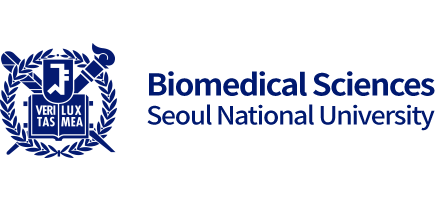Research
Research Field
Primary interests of the Health System Data Science Lab include (1) using data science methodologies to conduct large scale epidemiological studies using public health big data, and (2) finding applications of deep learning and explainable artificial intelligence (XAI) in healthcare.Using public health big data such as the Korean National Health Insurance System's health claims data, we are interested in creating a big data platform that merges individual-level information with area-level environmental factors. With this platform, we aim to conduct a wide range of studies such as identifying individual- and area-level risk factors associated with major health outcomes, determining the effect of changes in health behaviors on patient prognosis, elucidating susceptible populations to major outcomes, and using healthcare utilization metrics such as patterns of care and continuity of care to predict patient outcomes.
Emerging fusion databases have made way for opportunistic deep learning, where we can predict an unconventional, yet clinical relevant, medical outcomes using medical images with the help of deep learning. Furthermore, going beyond the ability to predict outcomes, we are interested in the real clinical implications of these deep learning-based biomarkers with respect to existing predictive gold-standards. We have used retinal fundus images to predict atherosclerosis and validated its risk-stratification performance over existing stratification algorithms. We are searching for more clinically relevant deep learning-based biomarkers to help clinicians better understand patients at risk.
Understanding deep learning model decisions is important for clinical decision support. However, the black-box nature of deep learning models makes deep learning-based decisions difficult to understand and interpret. We are interested in finding the best ways to make deep learning models understandable—and acceptable— to clinicians, regulating bodies, and patients. For example, going beyond what simple importance heatmaps have to offer, we have developed and validated counterfactual example-based explanations using adversarial examples to explain a model's rationale, or causal inference, for deep learning-based glaucoma decisions. [[https://doi.org/10.1016/j.ophtha.2020.06.036](https://doi.org/10.1016/j.ophtha.2020.06.036)].
Keyword
Data science, pharmacoepidemiology, cost-effectiveness, health promotion, explainable artificial intelligence (XAI)Intensive Major
Education
- 1993.03 - 1999.02 Seoul National University College of Medicine (Major: Medicine), MD
- 2001.03 - 2003.08 Seoul National University Graduate School of Public Health (Major: Health care Management and Policy), MPH
- 2003.09 - 2006.02 Seoul National University College of Medicine (Major: Family Medicine), Ph.D
Career
- 2016.07-current: Seoul National University, Department of Biomedical Sciences, Health System Data Science Lab Professor
- 2016.04-current: KCDC Korea Expert Committee on Immunization Practices Member
- 2018.01-current: Young Korean Academy of Science and Technology Member
- 2019.04-2020.03: Presidential Committee on The Fourth Industrial Revolution, Digital Healthcare Special Committee Member
- 2017.03-2020.04: Korean Academy of Science and Technology Science and Human Rights Committee Member
- 2016.07-2020.07: Seoul National University Hospital Health Promotion Center Director; Seoul National University College of Medicine, Seoul National University Hospital Family Medicine Head Professor
- 2014.08-2015.08: Harvard School of Public Health Global Health and Health Policy Exchange Professor
- 2013.03-2014.06: The National Assembly of The Republic of Korea North Korea Policy Governance Advisory Committee Health Care Advisor
- 2011.07-2012.01: National Evidence-based healthcare Collaborating Agency Research Planning Team Leader
- 2011.01-2014.06: Seoul National University Cancer Hospital Cancer Information Education Center Director
- 2008.04-current: Seoul National University College of Medicine/Seoul National University Hospital Family Medicine Full-time Lecturer, Assistant Professor, Associate Professor, Professor
- 2007.04-2008.03: Ministry of Health and Welfare Cancer Patient Pain Management Committee Member
- 2004.03-2008.03: National Cancer Center Cancer Control Institute, Head of Quality of Life Improvement Research Department
- 1999.03-2004.02: Seoul National University Hospital Family Medicine Intern, Resident, Fellow
Publication
- Son JS, Choi S, Kim K, Kim SM, Choi D, Lee G, Jeong SM, Park SY, Kim YY, Yun JM, Park SM (Correspondence). Association of Blood Pressure Classification in Korean Young Adults According to the 2017 American College of Cardiology/American Heart Association Guidelines With Subsequent Cardiovascular Disease Events. JAMA. 2018 Nov 6; 320(17):1783-1792. doi: 10.1001/jama.2018.16501.
- Kim SR, Choi S, Kim K, Chang J, Kim SM, Cho Y, Oh YH, Lee G, Son JS, Kim KH, Park SM. Association of the combined effects of air pollution and changes in physical activity with cardiovascular disease in young adults. Eur Heart J. 2021 Jul 1;42(25):2487-2497. doi: 10.1093/eurheartj/ehab139. PMID: 33780974.
- Kim K, Choi S, Park SM (Correspondence). Association of High Body Mass Index and Hepatocellular Carcinoma in Patients With Chronic Hepatitis B Virus Infection. JAMA Oncol. 2018 Mar 22. doi: 10.1001/jamaoncol.2018.0035.
- Chang J, Lee J, Ha A, Han YS, Bak E, Choi S, Yun JM, Kang U, Shin IH, Shin JY, Ko T, Bae YS, Oh BL, Park KH, Park SM. Explaining the Rationale of Deep Learning Glaucoma Decisions with Adversarial Examples. Ophthalmology. 2021 Jan;128(1):78-88. doi: 10.1016/j.ophtha.2020.06.036. Epub 2020 Jun 26. PMID: 32598951.
- Park SM, Yun YH, Kim YA, Jo M, Won YJ, Back JH, Lee ES. Prediagnosis Body Mass Index and Risk of Secondary Primary Cancer in Male Cancer Survivors: A Large Cohort Study. J Clin Oncol. 2016 Dec;34(34):4116-4124. doi: 10.1200/JCO.2016.66.4920. Epub 2016 Oct 31. PMID: 27863195; PMCID: PMC5477820.




